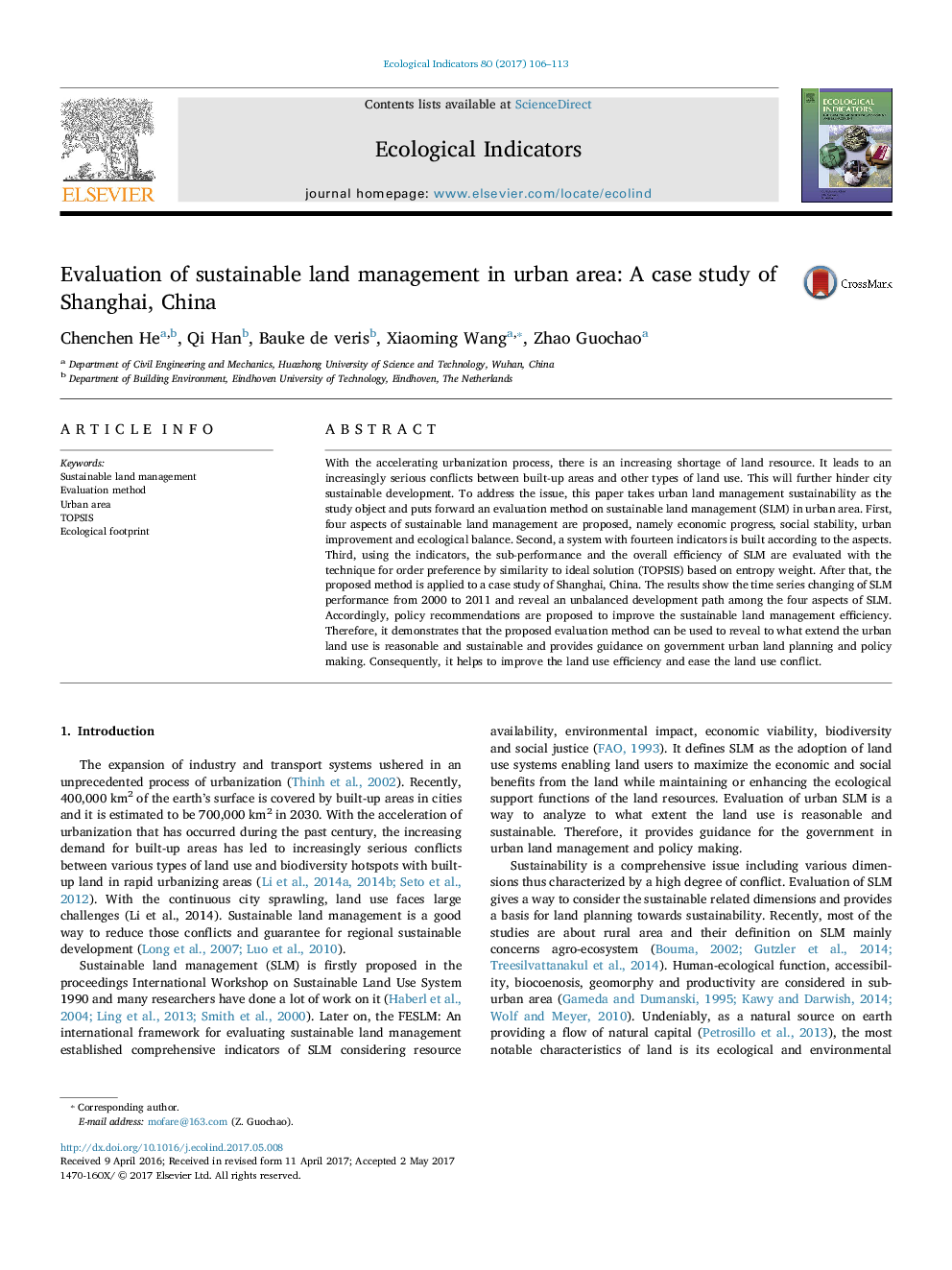ترجمه فارسی عنوان مقاله
ارزیابی مدیریت پایدار در مناطق شهری: مطالعه موردی شانگهای چین
عنوان انگلیسی
Evaluation of sustainable land management in urban area: A case study of Shanghai, China
| کد مقاله | سال انتشار | تعداد صفحات مقاله انگلیسی |
|---|---|---|
| 95266 | 2017 | 8 صفحه PDF |
منبع

Publisher : Elsevier - Science Direct (الزویر - ساینس دایرکت)
Journal : Ecological Indicators, Volume 80, September 2017, Pages 106-113

